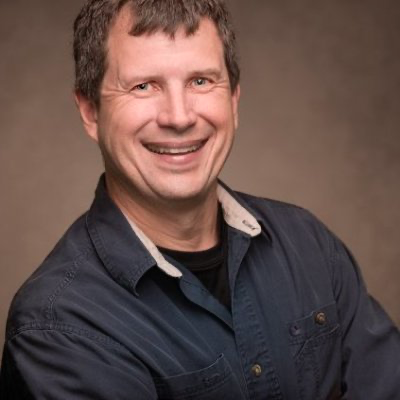
Caregivers are Survivors, Too
Understand more about how to encourage cancer caregivers before and after the battle.

Russ Licht
(AML survivor and advisory board member)
Caregivers are survivors, too.
This website is full of stories of cancer survivors and rightly so. Finding hope during and after a terrible journey is inspiring, but for those of us who have walked that path, we know there are many heroes behind us who made it possible.
For my 8 tips on how to encourage caregivers, see the end of this article.
Caregiver after-effects
The unfortunate truth is that our caregivers are more likely to suffer the after-effects of trauma than we (cancer survivors) are. That seems odd, but true.
There is a huge burden laid on our caregivers. They see our decline and grieve for us. They have to do things for us that we used to do for ourselves, plus care for themselves and maybe even for other dependents.
As a cancer patient, especially when we are hospitalized, often our only job is to lay in bed and do what we are told. To read my story, see An Impressive Circle of Friends
When we get better, everyone congratulates us and speaks of our courage and strength. But sometimes those well-meaning kudos can ignore and maybe hurt our caregivers standing in the background. They saw how weak we really were and stood strong for us. They had the courage to wake up every morning to face another day when we were helpless and hopeless.
Perhaps the highest praise for courage should go to our caregivers.
A burden to bear
On the day I was officially declared healed of leukemia, everyone was giddy in the clinic. Standing beside me, my wife and caregiver was soaking up the encouragement and rejoicing with me.
I couldn’t have survived without her, and thankfully, everyone there knew it. They all love her dearly, and some even refer to her as “Dr. Jo Anne.” They gave her the credit she deserves for walking this long and difficult journey. Caregivers are survivors, too.
Unfortunately, surviving is not true for all caregivers. Some don’t continue even when the patient lives on. The stress is deadly for some, and disastrous for the marriages and relationships of others. I was shocked to hear about spouses who died right after their loved one’s recovery. It also hurt to learn that some caregivers just walked away when the burden became too great to bear.
My wife’s survival
Midway through a very long recovery period, a pastor friend was listening to us tell of all the difficult battles and victories. He looked at me and asked, “How do you process all of this?” He was referring to the physical trauma, but the question also applied to my wife.
Her story of survival is just as important as mine. She lived through my cancer journey, too, and had to deal with some of the unique challenges of being a caregiver.
So, when those memories flood into our thoughts, we both focus on the loving-kindness and incredible skill that people brought to my bedside. Jo Anne thinks about all the people who wrote encouraging words and prayers on Caring Bridge, or who brought meals and helped with home repairs. She also remembers the very kind nurses who made sure to look after her whenever she visited the hospital. Their words of encouragement and wise counsel brought strength and healing to her as well.
A family journey
Our kids walked this journey, too, so when we gather as a family, we take time to recall the journey we’ve been on. We retell our favorite stories; the good, the bad, and the funny ones. It’s how we process and continue healing. My daughter’s story is here, “Rowing for My Dad.” (I can almost read that one now without crying.)
And above all the most helpful was our faith in God. Having a personal relationship with the Almighty is much, much more than just leaning on encouraging words and platitudes. We have grown deeper in understanding how God works, and how he weaves our lives together with others to accomplish more than we can imagine. Yes, we also give Him credit for my healing, and yet, even if I die, we will rejoice.
Sharing a caregiver’s perspective
We also have a growing desire to help patients, medical workers, and caregivers who are just entering this field of battle. Jo Anne and I regularly learn of new people facing Stem Cell Transplant (SCT, formerly known as Bone Marrow Transplant.) We offer to meet with them and talk through the journey. They need to hear from a caregiver’s perspective just as much as from a patient.
Having a strong caregiver by my side now is as important as when I started this journey, and her well-being is just as essential. Caregivers are survivors, too!
8 Tips for encouraging caregivers
If you know a caregiver here are some practical tips on how to encourage them:
- Encourage them to share their experience. If they are using a blog like Caring Bridge to share medical updates with family and friends, have them to share about themselves, too. Those words about the caregiver are just as important as patient updates and journaling helps process the hurts.
- Let them vent a little. Just listen when they need to talk. Don’t offer advice, just be there.
- Give them a break. Offer to sit with the patient while they take a day off.
- Give them a gift—a spa day is always welcome. For guys, if the spa isn’t their thing, free them up to go to the gym or barbershop or something life-giving.
- Pray for them. Let them know you are praying for them and ask for specific requests.
- Offer to coordinate meals so these gifts won’t overwhelm the fridge (yes it can happen).
- Be the go-between for visitors and offers to help. Caregivers need a “project manager” to schedule well-wishers and helpers.
- Celebrate the caregiver’s role with praise in front of their friends and family.
To the caregiver heroes out there, know that we see you, and we appreciate you. I am so thankful for all of the ways you have helped me through this journey and continue to help me.
For more help for caregivers, read My Seven Caregiver Lessons.
To learn more about the power of prayer, see Asking God for Help
For more about beginning a relationship with God, see Knowing God Personally.
